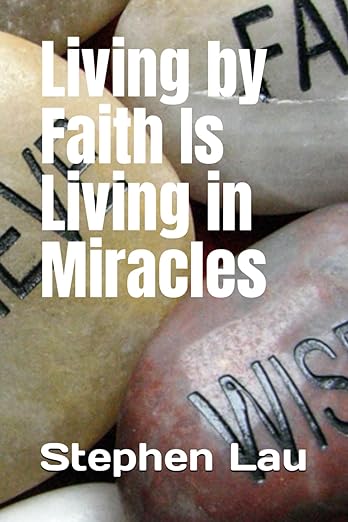There’re different ways of living life in this forever-changing world. They all come from the thinking mind, which may change positively or negatively with different life experiences in different phases of life.
1. Living by Wants
Many live according to what they want in life. Wants can come from basic needs, such as food, clothing, and shelter, or from other things desired in life, such as comfort, health, love, pleasures, success, wealth, and many others.
First, living by wants requires the means, that is, the money or the earnings to make a living, without which it’s impossible to get the wants. Unfortunately, many without the means yet demand their wants, and thus end up in crimes, such as stealing and robbing.
In life and living, there’re many wants, including the following: wanting alcohol may result in AUD (Alcohol Use Disorder); wanting gambling can happen to anyone from any walk of life, due to the fun that often turns into an unhealthy obsession with serious financial and relationship consequences; wanting sex can lead to pornography, adultery, infidelity, and extra-marital affairs; wanting money can cause greed and attachments to material things; wanting hobbies can make life more interesting, such as dancing, singing, and music; wanting sports can increase physical and mental skills in competitive sports, such as football and soccer, while wanting non-competitive sports, such as running and swimming, can be exercises for physical health; wanting success in any endeavor, such as careers and businesses, love and relationships, health and healing, can set goals and objectives in life and living.2. Living by Personality
An ego is self-identity. Many may have an inflated ego that gives them a distinguished personality to live by. They believe they’re not only much better but also totally different from others. Accordingly, others must succumb to their demands and desires. They’ve become so self-centered that they continuously inflate their own ego with higher expectations while controlling and demanding others to do what they want them to do.
On the other side of the inflated ego are those who’re living by deflated ego. They often feel inadequate, incompetent, and unloved. Their low self-esteem often originates from an unhappy childhood with extremely critical and demanding parents, as well as from ongoing life events, such as career and relationship failures and problems.
3. Living by Examples
Humans are all born to parents. While growing up, some live with their parents, while some live with their stepparents or foster parents.
Children learn to live by examples—the examples of those they’ve been living with while growing up. Positive parental love, characterized by affection, care, comfort, and concern, can be experienced by children in hugging, kissing, praising, and saying nice things to and about them.
But, instead of parental love, some children may experience only abuse, aggression, control, demand, hostility, and rejection from their parents throughout their development phases. They then learn to live by the examples of their parents in developing their low self-esteem and self-worth, academic and social incompetence, as well as mental and physical health problems. According to a study by Harward University, those who didn’t experience parent-child love were more than twice as likely to develop physical illnesses 35 years later.
4. Living by Conscience
Everybody has a conscience, which not only provides the ability to determine between right and wrong, but also the restraint to keep away from some basic urges and desires in the flesh. Conscience can make an individual feeling guilty when doing something bad, or joy when doing something gracious.
Conscience comes from beliefs and core values, as well as from perceptions of past life experiences and upbringing. But conscience not only changes over time but may also compromise. For example, in everyday life, those in authority may require others to do something in conflict with human conscience. Living in a world of compromise, many do consciously or subconsciously compromise their conscience.
According to the Bible, the human conscience is a gift from God, who has placed His standards of right and wrong in the mind of every person. So, when the person is on the right path, a good conscience will be at peace (Colossians 3:15). But when the person is tempted to go down the wrong path, that person will then hear the warning, but still has the freedom of choice to choose the right or the wrong.
The problem of living by conscience is that conscience can easily be contaminated by sin in the flesh.
5. Living by Faith
Living by faith is living according to the will of God. Living by faith is a tall order even for a true believer in God. The explanation is that everybody wants to do certain things his or her own way, instead of following God’s way.
First, becoming a believer in God is usually a long journey. Why? It’s because humans are now living in a secular society where science is the dominant religion. As a result, many don’t believe in the existence of God. However, despite the absence of God in their lives, spirituality may still be present in the hearts of many. It’s because they may believe they’ve an unfathomable spirit that can still provide their minds with direction, guidance, inspiration, and understanding. In other words, many are still spiritual without the presence of God in their hearts.
So, living by faith, you must first become a believer in God. To do that, you must have your intent to believe, which begins with your thinking mind to believe the unbelievable—that is, understanding the many paradoxes of life and existence.
Living by faith: Ask God to give you your "freedom of choice" to choose how to live your life that He has destined for you.
Stephen Lau


No comments:
Post a Comment